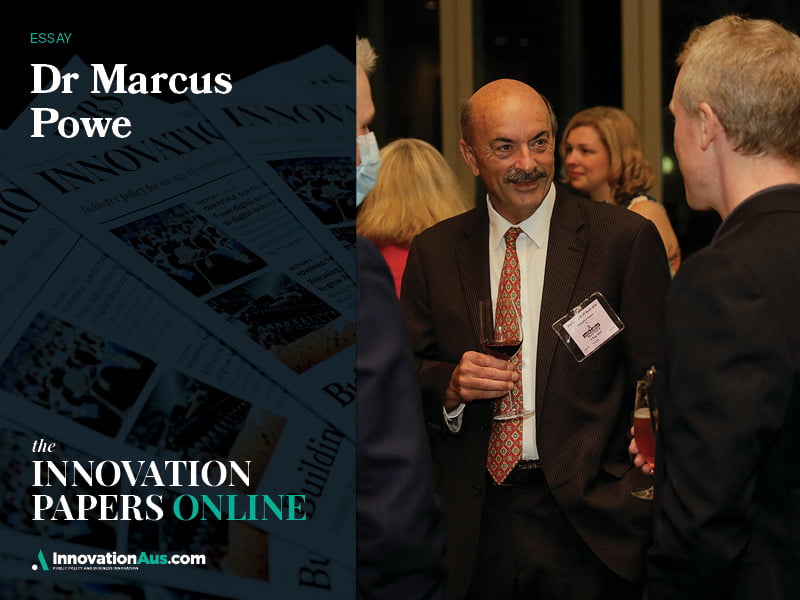If we review the funding policies for entrepreneurship in Australia over the last 30 years, it is apparent that the focus has been primarily on research, startups, incubators and accelerators, or similar activities with different names.
While this is seen to be active and engaging, we need to review both the return on this investment financially and the value created. Value combines social impact and economic returns which are inseparable for sustainability to occur.
The value dividend is then returned to individuals, communities and the Australian economy. A value that flows on to all.
The question is, where and who should the funding be made available to, what is the associated risk and return of that funding and over time, has the funding made a significant difference to the Australian economy? That is, has it delivered value?
Are we better off?
Recent federal and state policies relating to the fields of innovation and entrepreneurship appear to be based on throwing mountains of money at everything and expecting that we will lead the world as a result.
Unfortunately, this is neither realistic nor true.
The current ‘Let’s fund everything to do with starting a business’ is now seeing both the quality of applicants (the ability to enter, survive and thrive in the market) and quantity of applicants (the ability to fill a cohort to either start or grow an opportunity) diminishing.
The current policy settings appear to be based on the notion that by the democratisation of entrepreneurship, funding can then strategically be rolled out across Australia for all to participate in, with the hope that something positive will happen from this process.

I am not at all suggesting we raise the barriers for all Australians to explore the possibilities of being an entrepreneur. We should however explore what necessary skills and mindset are required to create organisations or businesses that will make a difference and can grow sustainably.
Training and support are now ubiquitous, but where are the results to show that this has been an effective strategy?
The real test for entrepreneurial success is growth, not simply starting a business or organisation. The time from idea to sustainable performance is years.
Australia needs to normalise the notion that entrepreneurship is hard to do, demanding, and when an entrepreneurial venture succeeds, we should all cheer.
Changing policies for innovation and entrepreneurship
I suggest we review the focus of government funding assistance for starting a business and divert the assistance to focus on growing a business. This is where the greatest market risk resides.
The policy change is based on one simple equation. An equation that represents the three steps of entering and growing in any marketplace. That equation being Research + Innovation + Commercialisation = Sustained Growth.
Current State: Prior to this year’s election, the former federal government promised and spent considerable sums of money to focus on the commercialisation phase as suggested in this paper. We now have a new government.
It is also of interest that the universities are worried that there may be an imbalance between pure and applied research. The former suffering as the focus prior to the election was firmly targeting commercialisation.
To understand the simple equation that supports and enables effective entrepreneurial growth is quite different from the complex reality of successfully taking a product or service to market.
The deployment of all the ingredients required, including good timing and luck to take a product, service, process, device, cure etc successfully to market is challenging, fraught with danger and risk, with many not making it.
A bleak outlook? No.
This simple equation highlights the relationship between risk and investment. It is not new, and it stands the test in different economic, political, cultural markets. It does not predict. It reflects thinking at three necessary levels to take something to the market: a macro view, a market view and an organisational view.
An example: The development of monitoring and sensing systems at the foundational stage of the Australian IVF research program.
The enterprising organisation did the following:
– Research (Organisational) – in-house/proprietary
– Innovation – (Market demanding constant change) – iterations high
– Commercialisation – (Macro Global) – sector not considered a priority by government – no assistance provided.
Opportunity lost? An Australian breakthrough, cited in both Lancet and Harvard Medical Review, could not afford to scale, travel and manufacture overseas. This may be a new metric that simply measures Australia’s lost opportunities. (figure 1).

Complexity continues
Industry, universities and state and the federal government tend to place emphasis on different parts of the equation. The challenge for our relatively small economy and low entrepreneurial performance is can we afford intellectually and financially to continue doing this?
While the social and political imperatives are clear, should we continue to build ‘small’ centres of excellence all over the country rather than perhaps having one world leading facility? Currently we are building very good, very small startups and multiplying and increasing their risk of sustained success.
However, if we look at where government funding is allocated, the current policy settings are focused on the startup (or research) phase, and not the sustainable growth phase where the most difference could be made and the greatest value gained. The reverse of where the greatest market risk resides.
This month’s International Institute for Management Development’s World Competitiveness Yearbook revealed Australia’s improvement into the top 20 of the 63 countries examined. However, challenges persist especially in entrepreneurship where it ranked 61st.
It is also of interest that Australia was not included in the 2021/22 Global Entrepreneurship Monitor Report, considered a valuable source of data allowing countries to be proactive to global market conditions.
One can reflect that the thinking was that our previous government was comfortable having a ‘follower’ mindset, rather than aspire to one of leadership in global markets.
What is going on? Both state and federal funding, education, taxation offsets are discussed and, in many cases, actioned. We are seeing program after program being funded to assist many forms of business starting.
However, in Australia I am unaware of results that support the current thinking and actions. We are used to using Return on Investment as a measure but where is Return on Innovation, a measure that offers a more comprehensive and meaningful measurement of intrinsic value, so why is it not used effortlessly in conversations in this country?
I wonder after being fortunate to teach entrepreneurship for many years in many countries, who tracks the results? Why would we not want to quantify this so we can continue to evolve and refine our expertise? Our learning is absent, and we repeat and repeat – the global rankings speak for themselves.
There has also been the development of an interesting phenomenon over the last 20 years, being the design and delivery of government-funded programs by many advisors, mentors and consultants.
To me, this in many cases infers that small to medium enterprises (SME) do not know what they are doing. It appears that as more programs emerge there will be more SMEs who do not engage, as they just want to get on with business.
The challenge is to consider, if the current programs just solving weaknesses or facilitating sustained business growth, and how do we know what the outcomes are as no measurement metrics are advertised?
There is also a conversation among some SMEs around “are the advisors working for the government and the funding metrics, or for our business?” so confidence and credibility of programs and assistance remains a question for SMEs.
As the Australian equity investment market continues to mature, it would be of interest to talk to and measure entrepreneur’s thoughts and expectations about starting a venture and what they really want and need.
The supply side of equity, finance, advice, education is strong in this country today. I wonder as the markets tighten and valuations diminish, what existing businesses that have ‘passed’ the enter, survive and thrive phase of the entrepreneurial journey, will be considered, supported and financed.
Only then will we be able to truly measure the Return on Innovation.
Dr Marcus Powe founded EIC Growth to assist CEOs and leaders implement and measure innovation systems that foster enterprising behaviour. He specialises in the growth of for-profit and not-for-profit organisations, nationally and internationally. Awarded twice by the Business and Higher Education Roundtable as Australia’s Best Entrepreneurial Educator and appointed Expert in Residence by the Australian Department of Industry, Science, Energy and Resources. Marcus also founded RMIT University’s Enterprise Board and led Cisco Asia Pacific Entrepreneurship programs in 15 countries.
Do you know more? Contact James Riley via Email.

